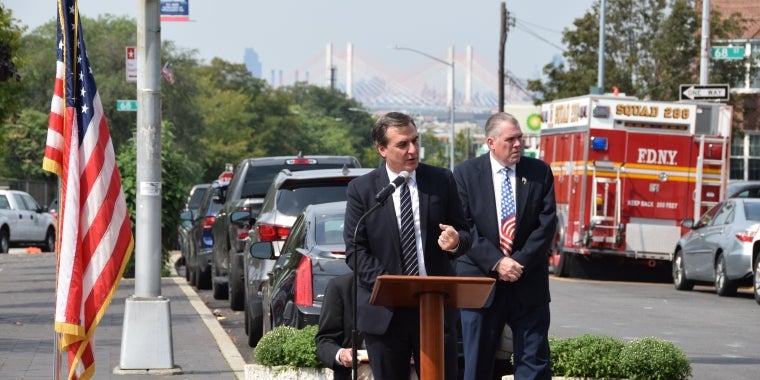
Astoria Leaders Fight to Protect Ratepayers
Michael Gianaris
January 16, 2012
Queens, NY – Continuing their efforts to protect energy ratepayers, Senator Michael Gianaris and Council Member Peter F. Vallone, Jr. are pushing a federal judge to reject the proposed settlement for an illegal price-fixing case involving Morgan Stanley and two western Queens power plants that caused ratepayers to lose nearly $300 million in two years.
Upon learning that Morgan Stanley reaped $21.6 million from the illegal anti-competitive deal, the elected officials sent a letter to Judge William Pauley, requesting a re-evaluation of the $4.8 million settlement reached between the investment bank the U.S. Department of Justice (DOJ). Gianaris and Vallone believe the bank should be subjected to a much larger fine. They are also asking that a provision of reimbursement to ratepayers who lost money due to this deal be included in the final ruling.
Senator Gianaris said, “Allowing a deep-pocketed investment bank to get away with just a slap on the wrist would be treated as the cost of doing business and would continue to permit the bank to reap the benefits of its illicit profits. The settlement proposal is an insult to ratepayers during a difficult economic time, and I encourage Judge Pauley to protect the public by rejecting this proposal.”
Council Member Vallone said, “Who came up with this deal – Bernie Madoff? How could the Justice Department and the court allow Morgan Stanley to conspire with Astoria Generating Company and KeySpan to artificially raise rates and make millions of dollars without returning one cent to the ratepayers?”
In 2005 and 2006, Morgan Stanley acted as an intermediary in a price-fixing deal between KeySpan Energy Corporation and Astoria Generating Company, enabling the power companies to rig wholesale energy prices through complicated derivative-swapping.
The $4.8 million settlement between the bank and DOJ would allow Morgan Stanley to pocket $16.8 million of the total it received through the price-fixing deal. Gianaris and Vallone believe the nominal settlement sum combined with the lack of any requirement that affected ratepayers be reimbursed disenfranchises consumers, who have been hurt the most by the deal.


